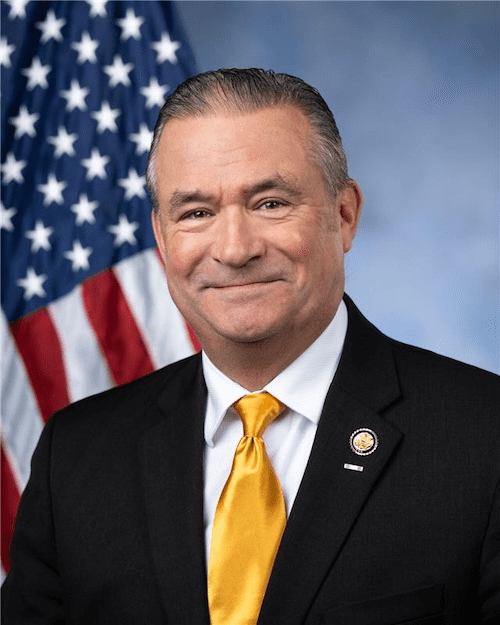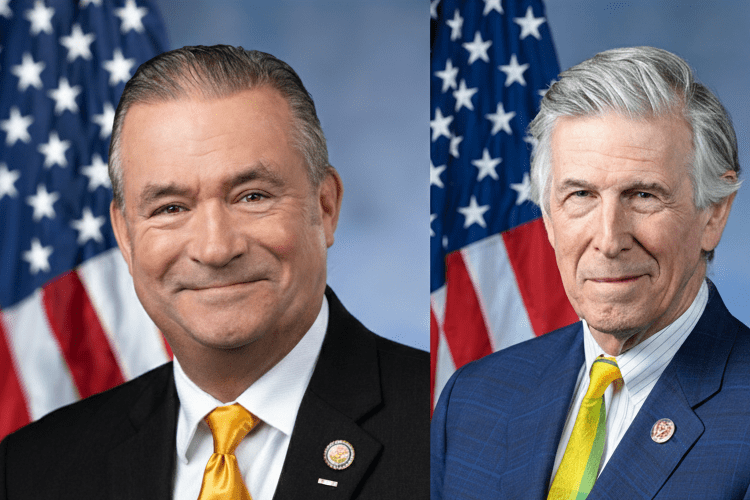Bipartisan Duo Sparks Fury with 60% Censure Vote Plot
In the dim-lit diners of Omaha, Nebraska, where the scent of sizzling bacon and fresh coffee mingles with the murmur of morning news radios, 62-year-old retiree Hank Whitaker sets down his fork with a clatter that echoes his growing frustration, his callused hands—scarred from decades welding pipelines in the Platte River Valley—clenching the edge of the Formica table. Hank, a lifelong Republican who cast his ballot for Donald J. Trump with the fervor of a man reclaiming his country, tuned into C-SPAN last week expecting the fiery accountability he’d voted for: censures flying like confetti at a reckoning, swamp creatures dragged into the light for their Epstein entanglements and Squad scandals. Instead, he watched in disbelief as Rep. Don Bacon, his own congressman from Nebraska’s 2nd District, joined forces with Democrat Don Beyer to propose a bipartisan resolution that hikes the bar for House censures from a simple majority to a punishing 60% threshold—a move that feels less like reform and more like a velvet rope shielding the guilty from the gavel. “I sent Don to D.C. to fight the machine, not fix it for ’em,” Hank grumbles, his voice gravelly from years of factory shifts, eyes narrowing at the TV screen where Bacon’s earnest face beams back. “This ain’t draining the swamp—it’s deepening it.” Hank’s heartache isn’t isolated; it’s the raw pulse of a base betrayed, a wave of MAGA dismay crashing over Capitol Hill as Trump’s hard-won majority teeters on the edge of self-sabotage, all in the name of “institutional stability” that rings hollow to the heartland heroes who powered the 2024 red tide.

Bacon and Beyer’s resolution, introduced on November 19, 2025, amid a flurry of four censure attempts in a single week—the most since the 1850s—paints itself as a salve for a chamber scarred by partisan pyrotechnics. H.Res. 1245, a slim four-page document filed in the House Clerk’s office, argues the current simple-majority rule (218 of 435 votes) has devolved into “a broken process” weaponized for revenge rather than remedy, citing recent salvos like the failed bid to censure Del. Stacey Plaskett over her 2019 texts with Jeffrey Epstein and Rep. Ilhan Omar for her “jihadist” rhetoric. “Censure should be reserved for grave misconduct, not grievance theater,” Bacon said in a joint statement with Beyer, the Virginia Democrat whose district hugs Arlington’s federal fog, his words a call for bipartisanship in a body where unity feels as rare as a bipartisan budget. Historically, only 29 House censures have stained the record since 1789, from wartime profiteers to bribery busts, each a supermajority milestone that demanded cross-aisle consensus. The duo’s proposal—requiring 60% or 261 votes—aims to restore that gravity, a firewall against the “four censures in four days” frenzy that peaked with Plaskett’s Epstein-linked flop, where GOP hardliners howled at the 210-215 defeat as a deep-state dodge.

For Hank Whitaker, nursing his coffee in that Omaha booth as the diner’s jukebox croons an old Merle Haggard tune about working man’s blues, the resolution lands like a gut punch from a trusted teammate. “Don Bacon’s my guy—voted for him twice because he promised to back the president on cleaning house,” Hank says, his flannel shirt sleeves rolled up to reveal forearms tanned from volunteer shifts at the local VFW. “Now he’s teaming with a Dem to make it harder to call out crooks like Plaskett? That’s not fighting the swamp; that’s floating with it.” Hank’s district, Nebraska’s 2nd, a purple patch of Omaha’s urban sprawl where Trump eked out a 3% win in 2024, sent Bacon back with a mandate for MAGA muscle—border walls, Big Tech busts, and bureaucratic bloodletting. Bacon, a retired Army brigadier general with a chest full of ribbons from Iraq deployments, campaigned on that warrior ethos, his ads featuring testimonials from vets like Hank who see in Trump a champion against the “endless wars and empty promises” of the establishment. The Epstein texts—Plaskett’s casual coaching from the convicted sex trafficker on anti-Trump zingers—struck a nerve as exhibit A in the swamp’s slime, a betrayal that demanded not a slap, but a shove out the door. Bacon’s pivot to protection feels personal, a fracture in the faith that propelled 74 million to the polls, leaving men like Hank questioning if their vote was for victory or velvet gloves.

The emotional rift widens in the stories of those the censures target and the base they betray, a chamber where accountability once meant consequences, not conciliation. Plaskett, the Virgin Islands delegate whose baritone barbs made her a Jan. 6 sensation, embodies the divide—her Epstein exchanges, innocuous on travel tips but incendiary in implication, a thread in the Oversight Committee’s 33,000-page dump that Trump’s DOJ has vowed to probe deeper. “She texted a predator for political poison— that’s not chit-chat; it’s collusion,” fumes Rep. Matt Gaetz, Florida’s firebrand whose own ethics clouds cleared under Trump’s shadow, his X post racking 1.5 million views with calls for “expel or explain.” Gaetz, a Bacon ally turned critic, sees the resolution as RINO retreat, a bipartisan bandage on a bullet wound that lets the Squad skate while the Freedom Caucus fumes. Omar, the Minnesota maverick whose “jihad” tweet drew death threats and donor droughts, joins the fray as exhibit B, her censure bid tanking 208-217 in the same week’s whirlwind. Beyer, the Virginia moderate whose electric-car empire funds his campaigns, frames the 60% hike as “adulting in the House,” a nod to the 29 historical censures that demanded near-unanimity, like the 1861 slap on secessionist Caleb Smith or the 1980 ouster of bribe-taker Michael Myers. “We’re restoring gravity to a tool that’s become a toy,” Beyer told reporters in a Rayburn corridor scrum, his bow tie askew from the flashbulbs.

Yet beneath the procedural polish beats the heartbreak of a base that feels forgotten, Hank Whitaker’s diner dismay echoed in diners from Des Moines to Dallas, where Trump voters who braved blizzards and ballots now scroll X feeds fuming at “bipartisan BS.” “I thought we won—now they’re watering down the win,” laments Sarah Kline, 38, a Topeka mom of three whose Trump yard sign still sways in the wind, her evenings spent poring over C-SPAN with a highlighter, marking moments of “swamp surrender.” Kline, a former teacher turned home-schooler, sees in the resolution a dilution of the drain-the-swamp dream, a promise Trump thundered from the RNC stage in 2024: “No more censures for show—we’ll clean ’em out for good.” The week’s four-failures frenzy—Plaskett’s flop, Omar’s ouster dodge, even a bid against MAGA’s own Matt Gaetz for ethics echoes—highlights the house divided, a slim 220-215 GOP edge where every vote is a veto, every alliance a tightrope. Bacon, the Nebraska general whose 2024 reelection hinged on 52% in a purple patch, walks that wire with wariness—his district’s vets and voters demanding Trump loyalty, but his bipartisan bent born of Iraq command posts where compromise meant survival. “Censure’s not a slingshot—it’s a sledgehammer,” Bacon argued in a Fox op-ed, his words a warrior’s wisdom, but to Kline, it’s capitulation, a RINO reflex that rankles the rank-and-file.
The human cost crests in the constituents caught in the crossfire, families like the Whitakers who tuned into the Plaskett hearing expecting justice for Epstein’s enablers, only to watch it wither in a 210-215 whimper. “My boy’s serving in the Guard—risking it all for a country where crooks get censures that fizzle?” Hank asks, his coffee cold now, the diner’s jukebox shifting to a twangy lament. The Epstein texts, casual as they were— “Good work” after a Trump takedown—symbolize the elite impunity Trump railed against, his first-term DOJ nabbing 1,500 officials in graft grabs that set the MAGA bar high. Omar’s rhetoric, fiery as a Fourth of July flare, strikes as Squad sabotage, her “jihad” jab a jolt to Jewish allies in Trump’s Abraham Accords orbit. Beyer’s bill, with its 60% gauntlet, aims to elevate the exercise—historical censures like the 1832 slap on duelist William Stanbery demanded 90% consensus—but critics cry cover, a velvet veto for the venal in a House where 29 rebukes span two centuries of corruption.
As November’s chill seeps into Capitol corridors, this censure saga simmers like a pot left too long on the boil, a chamber chasing consensus while the country craves consequences. For Kline in Topeka, highlighting headlines over homework, it’s a call to arms; for Bacon in Omaha, it’s a bridge to build. In the grand game of governance, where simple majorities make kings and supermajorities mend fences, Bacon and Beyer’s bid hangs in the balance—a potential panacea for partisanship or a poison pill for the people, a reminder that in Trump’s America, draining the swamp demands not just votes, but valor.


